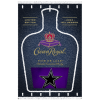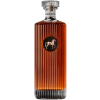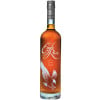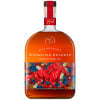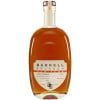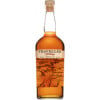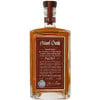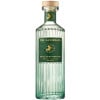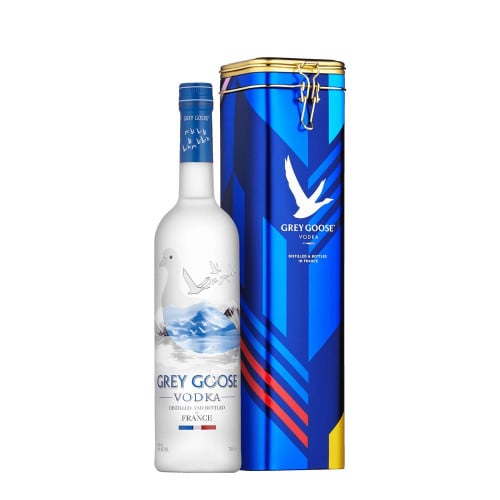About Grey Goose Collectible Gift Tin
The water used in production comes from the natural spring, Gensac-la-Pallue, in the Cognac region, where it gets filtered through Champagne limestone. Grey Goose is crafted with locally sourced soft winter wheat grown in Picardy known as "the breadbasket of France", a wheat-growing region in France. The grain is sown in October and harvested in August. This wheat, classified as "superior bread-making wheat," is the only grain used in Grey Goose. According to Thibault, soft wheat, as opposed to hard wheat, is better for distilling, the four additional months of growth in comparison to summer wheat yielding a more durable grain.
Grey Goose’s ingredients are column-distilled in a facility in the same region. Enzymes are used to break down the carbohydrates into fermentable sugars, and the fermentation takes place continuously over six cascading tanks. The wash is then distilled once into spirit using a five-step process. The calcium-rich Gensac-La-Pallue spring water is drawn from 150 meters below the blending facility in Cognac. The spirit is filtered through a copper filtration system in order to infuse it with additional flavor. The distillate is sent to a plant in Cognac, France, dedicated to the sole purpose of bottling of Grey Goose. The resultant spirit is cut with spring water, bottled at 80 proof, and corked.
This version comes with a collectible tin with an attractive contemporary design, perfect for the vodka connoisseur in your life ― or a nice addition for your own spirits cabinet. The bottle inside is the same Grey Goose Vodka that you know and love.
Gift this vodka today!
About Grey Goose
Grey Goose, one of the most notorious luxury vodka labels, is produced in France. The idea for a premium vodka for the US market was realized in 1997 by the late Sidney Frank, founder and CEO of Sidney Frank Importing CO. The French brand was sold to Bacardi in 2004. The original recipe for the vodka was developed by the Maître de Chai for Grey Goose, François Thibault, in Cognac, France. François Thibault, who seamlessly transitioned his skills from cognac to vodka production, oversaw the first vodka ever to be produced in the Maître de Chai tradition.
About Vodka
Historians are not clear on the exact origin of vodka since different sources link its beginning to both Russia and Poland. But one thing is clear: this somewhat simple spirit, first used as a medicinal concoction, has become one of the most versatile drinks in the world.
It can be distilled from any type of grains, potatoes, or even grapes worldwide. Due to its simplicity, this unaged spirit's main flavor factor is the quality of water and the ingredients used in the distillation process.
Primarily used in cocktails, vodka can also stand its ground when enjoyed neat.
Check out our impressive selection of vodkas, find your new favorite in The best-reviewed vodkas, and explore our treasury of best vodka bottles under $50.
